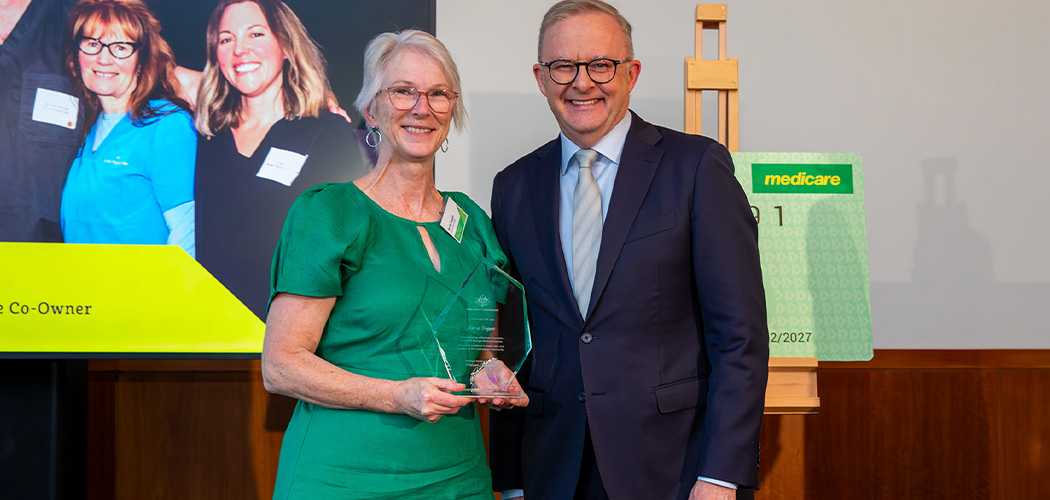Kerrie Duggan is the co-owner, managing director, and a nurse practitioner at Cygnet Family Practice in Tasmania’s Huon Valley. She stepped in as co-owner with the support of philanthropic investors to save the practice after the previous owner decided to close it.
Now a thriving multidisciplinary clinic, Cygnet Family Practice has a team of over 20 staff, including five GPs, and provides essential healthcare to around 2,000 local residents who might otherwise be left without access to medical services.
New nurse-led processes have improved patient care by capturing baseline health data, conducting health checks, and developing care plans for chronic conditions.
With state government funding, Kerrie and her colleague, dually qualified nurse practitioner and paramedic Alison Spicer, established an Urgent and After-Hours model of care. This nurse practitioner-led, community paramedic-supported service runs three days a week alongside the general practice, ensuring patients receive same-day care when needed.
Kerrie is hoping to secure funding to increase the service from three to six days a week.
In the last eight months the practice has had to close its books to new patients. “Every day we’re sending away between five and 25 patients to the urgent care services in Hobart. But some people have challenges with transport to Hobart. We have people coming into our urgent care service that refuse point blank to go to the hospital.”
“This means that people who get sick on the day can be treated by health professionals who are safe, qualified, and effective,” Kerrie explains.
Practice data shows that 99% of patients using the Urgent and After-Hours service receive care from nurse practitioners and paramedics, with an additional 1,700 appointments provided in 12 months. The service has also delivered significant cost savings – $520,000 in the last six months alone—against an annual operating cost of $250,000.








